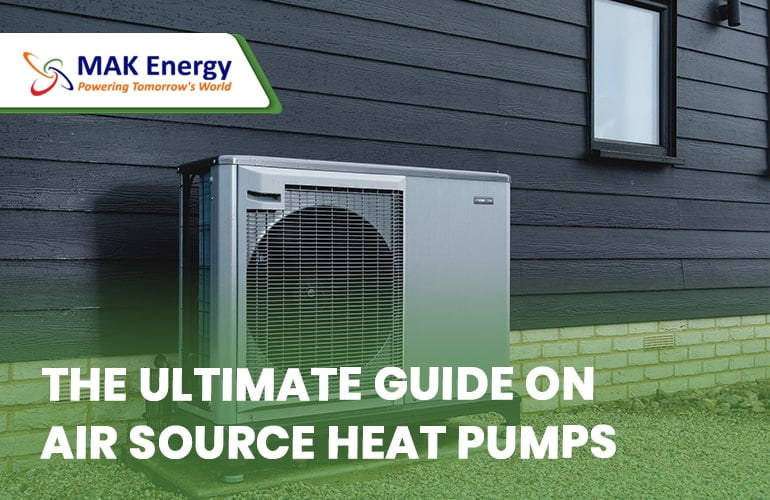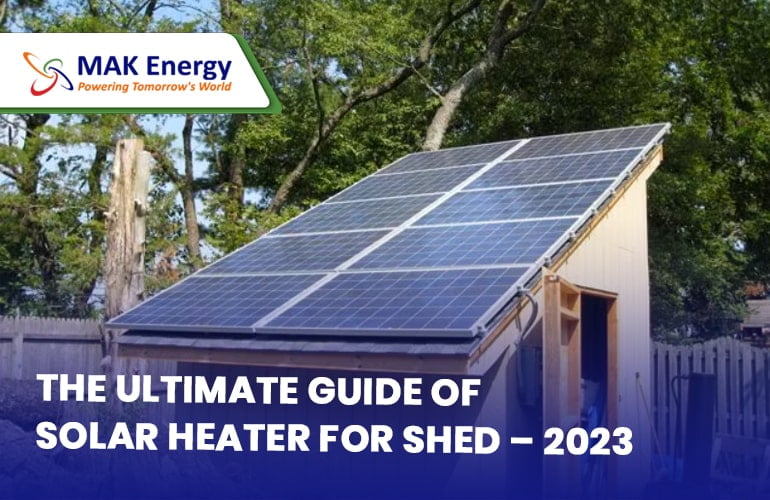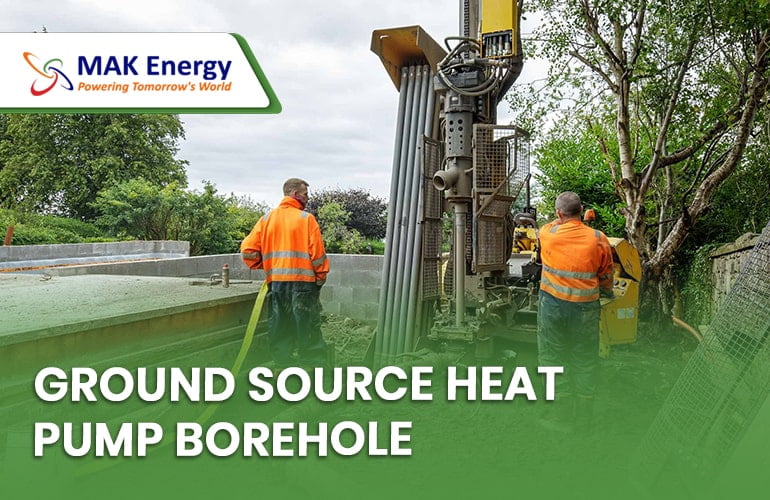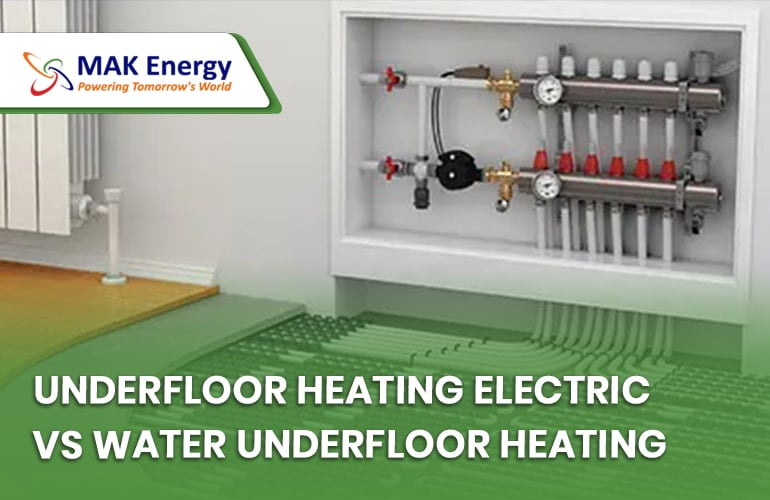Last updated: July 18th, 2023 at 10:23 am
Table of Contents
When planning to upgrade any part of your home, the most important thing you need to learn is a comprehensive and thorough understanding of the options available. This also applies to the case of heating systems for your home. The air source heating system is one of the most reliable and cost-effective heating solutions available in the market today? Although its popularity has yet to reach its full potential, it is steadily gaining traction with each passing day.
In this discussion, we will cover every aspect of the air source heating system, including what is air source heating system, how is it works, the upfront cost, running expenses, and how it will impact the heating system of your home.
What is an Air Source Heating System?
Most heating systems produce heat by burning fuel or using electricity, but air source heat pumps work very differently. Instead of producing heat, air source heating systems capture heat from the outside and transfer it inside a building. This is achieved through a refrigerant system that includes a compressor and condenser. The system absorbs heat from one space and releases it into another.
At the domestic level, air source heat pumps typically absorb heat from the outside and release it into the home through hot water-filled radiators. These heat pumps are Eco-friendly as they do not rely on fossil fuels, helping to keep the environment clean while efficiently heating the space. It is important to understand how an air source heating system works. Let’s delve into it.
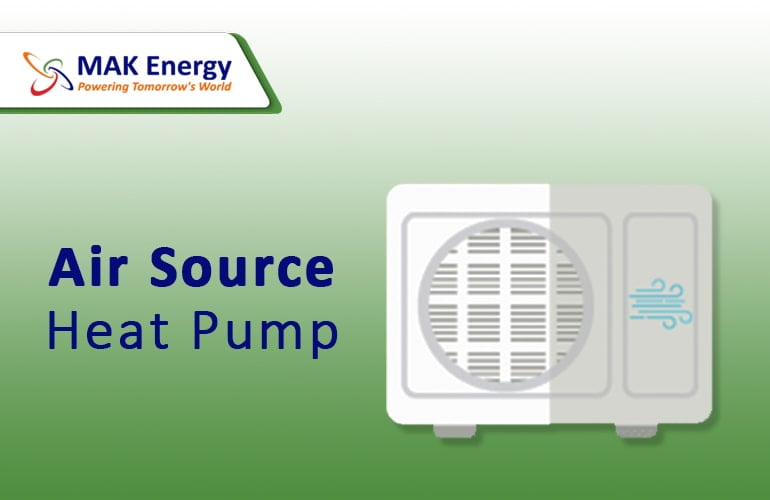
How An Air Source Heating System Work?
Air source heat pumps operate in a distinct manner compared to boilers. Unlike boilers, they do not generate heat themselves. Instead, they absorb heat from the outside and transfer it into the building. This process is facilitated through a refrigeration process known as vapor compression, which maximizes the utilization of the absorbed heat. The heat is absorbed into a fluid, causing it to boil and transform into gas. The gas is subsequently compressed, raising its temperature. This elevated temperature is then transferred into the heating system to warm the room.
What Types of Air Source Heat Pumps Are There?
Air to Water Heat Pump
Air-to-water heat pumps are widely utilized in UK households. As the name suggests, these heat pumps employ water in heat exchanges for the heating system. The water is heated within the exchanger and then circulated to the wet heating system, utilizing pipes for heat distribution. The notable advantage of air-to-water heat pumps is their capability to provide homeowners with both heated water and space heating. This versatility is a key reason why air-to-water heating systems are extensively adopted in residential settings.
Air to Air Heat Pump
Air-to-air heat pumps are primarily used for heating and cooling the air, often recognized as air conditioning units. These heat pumps directly transfer heat into your room, offering the convenience of both cooling and heating capabilities depending on your requirements. During the summer season, they can serve as your cooling partner, while in winter, they efficiently provide heat. However, it is important to note that unlike air-to-water heat pumps, air-to-air heat pumps do not provide hot water
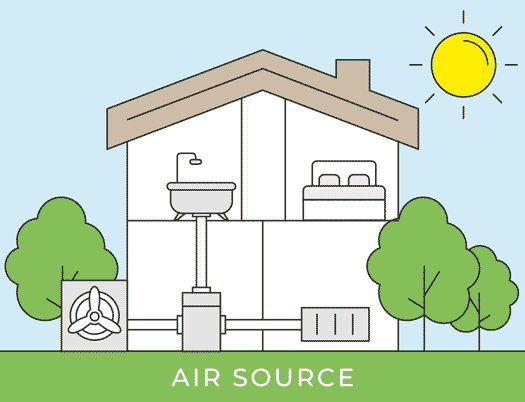
What is the Cost of Installing Air Source Heat Pumps?
The cost of installing an air source heating system in the UK may vary slightly depending on factors such as size, quality, and heating requirements. Generally, you can expect the cost of an air source heating system to range from £8,000 to £18,000. Please note that this figure is a rough estimate and may increase if your home is larger or if your heating needs are higher than the average household.
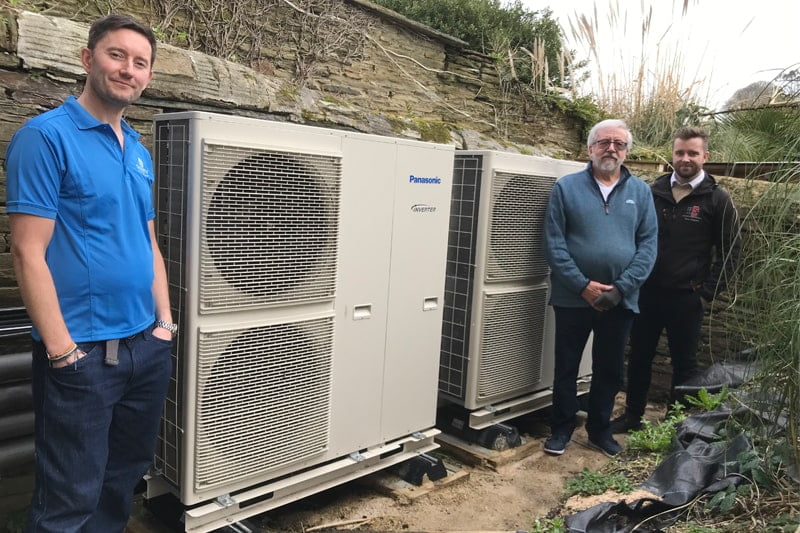
How Much Electricity Does an Air Source Heat Pump Use?
An air source heat pump consumes less electricity compared to a traditional gas boiler. The electricity usage of a heat pump varies depending on factors such as the type of heat pump (air-to-air or air-to-water), room size, room temperature, and outdoor temperature. To illustrate this, let’s consider an example: if a home requires 10,000 kWh of heat annually and the heat pump has a coefficient of performance (COP) of 3, the air source heat pump would utilize almost 3200 kWh of electricity. This consumption is significantly lower than that of an electric heater.
It’s important to note that the information provided is for illustrative purposes only. The electricity usage of a heat pump can increase if the outside temperature is much colder, as weather conditions have a significant impact on the electricity consumption of the heat pump.
Is Air Source Heat Pump Right for My Home?
Generally, one can confidently say yes! Air source heat pumps are known for their efficiency in generating heat while consuming less electricity. However, there are still some factors you should consider before deciding to install an air source heat pump for your home.
Climate
If you live in an area where the temperature remains below freezing for most of the year, the heat pump may face challenges in extracting heat from the surroundings. However, if you reside in a region with mild temperatures, an air source heat pump is unmatched in terms of its efficiency.
Current Heating System
If your current heating system is putting a strain on your wallet and causing higher monthly heating bills, an air source heat pump will undoubtedly save you money.
Insulation
An insulated home has a greater potential for effectively absorbing heat compared to an uninsulated one. If you are planning to install a heat pump, it is crucial to insulate your home’s windows, doors, and roofs in order to maximize heat retention.
Installing Cost
The initial cost of installing an air source heating system may be expensive, but it can result in significant long-term savings. Moreover, if you are eligible for government incentives for heat pump installation, it can provide an easier pathway for you to heat your home using an air source heating system.
Summary
Air source heat pumps efficiently heat space and water, saving costs in the long run. They extract warmth from outside and transfer it to your desired area. Though the initial cost is higher, the monthly heating expenses decrease significantly. These pumps also provide cooling in warmer months. Consider factors like home size, insulation, and climate conditions for optimal performance. With renewable energy from the air, air source heat pumps reduce your carbon footprint and offer a sustainable heating and cooling solution. Make the smart choice for cost-effective, energy-efficient, and environmentally friendly home comfort.

